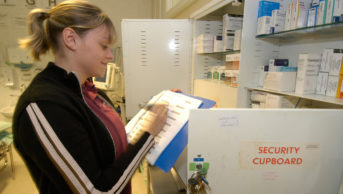
General Pharmaceutical Council
Pharmacists will no longer be able to automatically register as pharmacy technicians, as part of a revamp of the standards for the initial education and training (IET) of pharmacy technicians being undertaken by the General Pharmaceutical Council (GPhC).
GPhC says it wants to make the change because, while the professions share common characteristics, they are distinct and people should undertake the IET of the profession in which they intend to practice.
Under the proposed new standards, expected to be finalised in September, qualified pharmacy technicians will be able to formally supervise pre-registration pharmacy technicians for the first time.
Currently, pre-registration pharmacy technicians must take a part-time national vocational competence qualification and a part-time national knowledge qualification, and complete two years of relevant part-time work experience supervised by a pharmacist.
The GPhC’s proposal that the formal supervision role, including signing off a pre-registration pharmacy technician as fit to register, should be broadened to include suitably trained and experienced technicians, achieved widespread support in a 14-week consultation on the draft standards, which ended on 1 March 2017. As the pharmacy technician role evolves further to embrace working in non-pharmacy settings, the GPhC says it may widen the formal supervision role requirements again to include other professional groups.
Hugh Simpson, director of strategy at the GPhC, says that while there are no immediate plans to do this, it was about future-proofing the educational standards as much as possible. “Health professionals are working increasingly in multidisciplinary teams,” he says. “There may be occasions where, for example, doctors are working in environments where pharmacy technicians are learning and developing.”
The consultation on the standards also asked for views on whether the two year minimum work experience requirement before registration should remain.
Simpson says that some respondents from the educational sector argued that two years was too prescriptive and that there are some trainees who are competent and capable and have been working in a pharmacy environment who could complete their competency course in less than that. But most respondents were against change so the two-year requirement will stay.
The draft learning outcomes also includes the essential knowledge and skills that the GPhC thinks pharmacy technicians need to have in order to perform the ‘final accuracy check’ before a medicine is supplied. While respondents supported the view that it was appropriate and necessary for pre-registration pharmacy technicians to be trained to be accurate in their work and to be able to check medicines, they did not agree that they would be ready to act as ‘final accuracy checkers’ on completion of the initial education and training.
Simpson said that feedback from the consultation highlighted that accuracy checking is a skill and a function that pharmacy technicians need to be competent to do, but it is not just a functional skill but requires a level of maturity, responsibility and accountability.
“We will think about how that may be recognised within the standards,” he says.
You may also be interested in

Health and wellbeing included in updated RPS hospital pharmacy standards for the first time

High Court throws out legal challenge over GPhC standards but PDA says ruling provides “welcome clarification”
